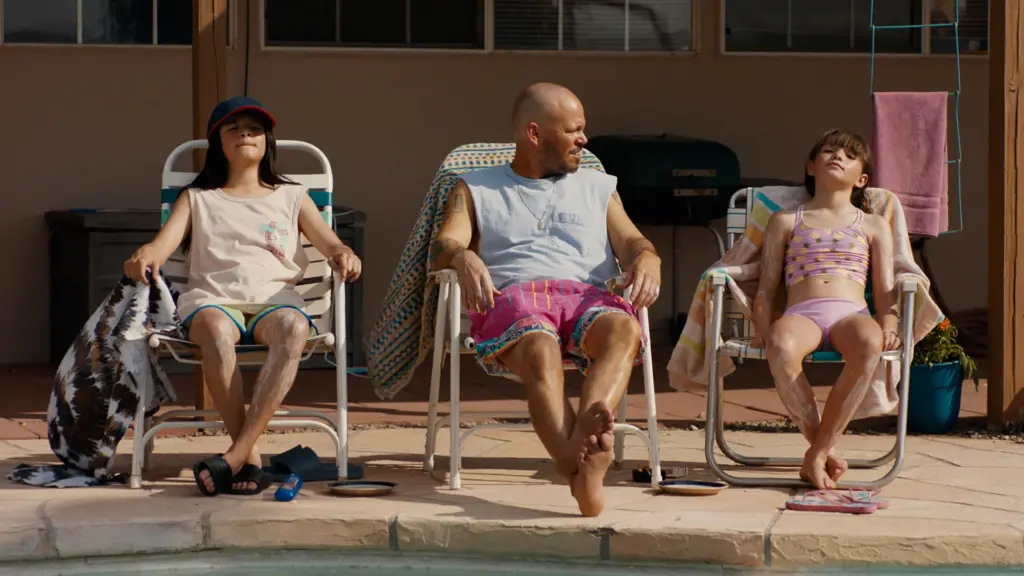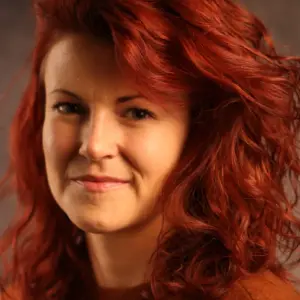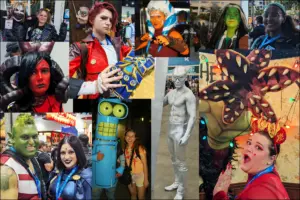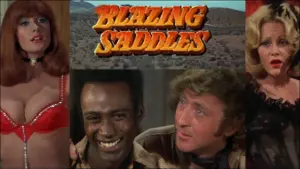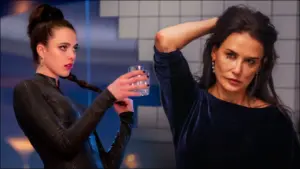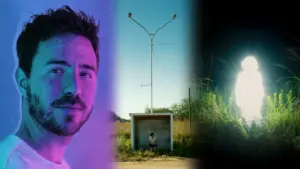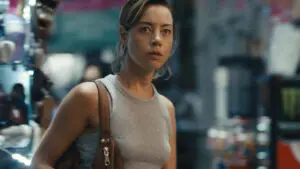Director Alessandra Lacorazza Samudio, a queer Colombian-American writer/director and editor, is the child of a brilliant but complicated man. Growing up, they bumped heads, like many families do, but it’s only in the years since his passing that Samudio has come to realize the full weight of their father’s impact on their life.
Channeling their circumstances into a beautifully immersive three-act story, Samudio’s directorial debut In the Summers is an impressive culmination of the bittersweet slices of life, which upon reflection, make up our core humanity.
In the Summers has impressed audiences at the Tribeca Film Festival, winning the Grand Special Prize and the Revelations Prize at the Deauville Film Festival, the Jordan Ressler First Feature Award at the Miami Film Festival, and both the Grand Jury Prize for U.S. Dramatic Film and the Director Award for U.S. Dramatic Film at the Sundance Film Festival.
In the film, two sisters navigate their loving but volatile father over the course of their yearly summer visits to his home in Las Cruces, New Mexico.
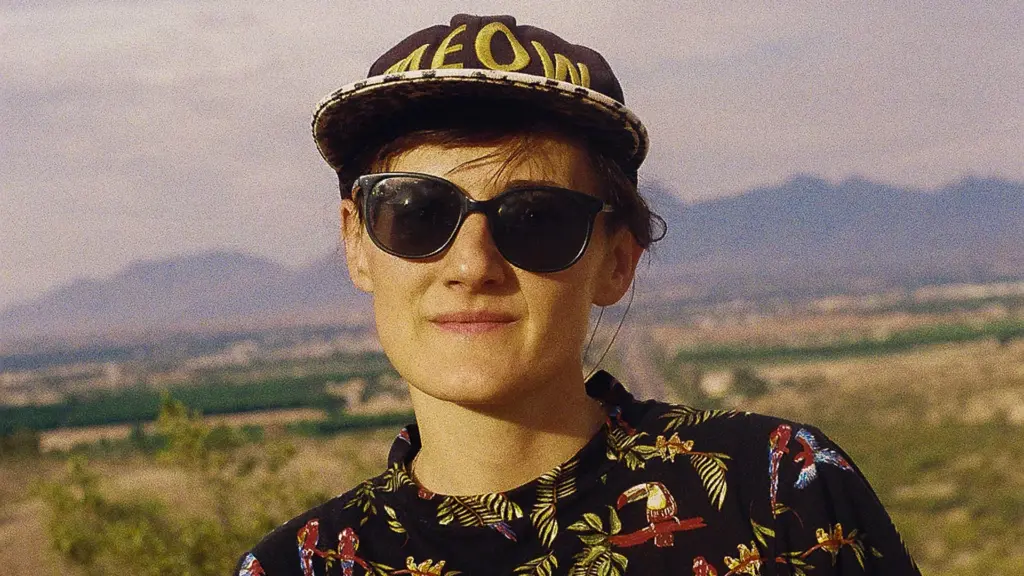
I was fortunate to interview the director ahead of the film’s September 20, 2024 release date, learning much from this brilliant up-and-comer. We discussed shooting on location in Las Cruces, nabbing a Grammy winning rapper to play the father figure, the impact that their Latin background has on their filmmaking, grounding an authentic queer story, how much of the movie is autobiographical versus fictionalized (some of the toughest scenes are pulled from reality), how they feel their late father might react to this story, and whether our missteps will forever define us, even after we’re gone.
Kalyn Corrigan: Congratulations on your directorial debut. It’s a fantastic film. It’s your first time directing, but it’s such a confidently made picture, you wouldn’t know it. Did you always want to direct?
Alessandra Lacorazza Samudio: First of all, thank you so much. I feel like maybe yes, but I didn’t know what directing was. I didn’t have examples of someone like me doing that kind of work. At the beginning, I was very into science, so I thought I was going to be an academic for most of my life. But I always had a love of film, and I didn’t really know you could make a career out of it. It wasn’t until some point in my life after college.
I studied psychology and sociology, and then the economy was failing, and everything was going to shit, and I was like, well, I guess I’ll just become a filmmaker. At that point I went into editing, not having sights on directing, because it feels so nebulous. I didn’t go to film school. I didn’t know how you would get into it.
I started learning the craft from an editing perspective, and fell in love with that, but then wanted to tell my own stories. It all happened a bit organically. Slowly but surely, I directed my first short, which was the only short I did before In the Summers — and just made it up as I was going.
Well, it’s incredibly impressive what you’ve pulled off. Who are some of your filmmaking influences, especially for In the Summers?
So many. I love film. Starting with old films, silent films, and going up to indie stuff now. I love foreign films.
For In the Summers specifically, my big influences are Lucrecia Martel’s La Cienega. It’s one of my favorite films of all time, and it’s something that really resonated because it also takes place in the summer, and it’s a family story, and her use of sound design, and just how you bring in an audience was really inspiring to me.
I love Andrea Arnold, and the organic-ness of her characters and how you feel all of a sudden in with them, and you’re not really thinking about anything but those characters’ lives.
Another film that really struck me in terms of how it is portrayed, which wasn’t a direct influence, but it was something that I thought about a lot, because I hadn’t seen a film do this, was Joanna Hogg’s The Souvenir. It’s seeing the effects that addiction has on someone else, which I think is a theme of In the Summers.
And then, you know, like The Last Picture Show, the slice of life, you’re just seeing these moments.
The film begins with a message that reads, “In the Summers includes dialogue in both English and Spanish, presented without subtitles to authentically express the characters’ experiences.” Why did you want this to be the first thing people saw when they watched your movie?
We put that disclaimer on recently, because we wanted to make sure that people understood that it was intentional. I don’t know that it’s something I thought about when I was writing, because I wrote it mostly in English, but once we got to set, it was very organic for a lot of the dialogue to be in Spanish.
René [Pérez Joglar, lead actor] speaks both languages, but he’s very comfortable in Spanish, so that became part of the character — which to be honest, was more reflective of my life. I grew up in both languages, and I always wanted him to feel comfortable, but it became part of the story of how he connects. Depending on the language he’s speaking, he’s connecting differently with his daughters, because speaking your native tongue versus something that you’ve learned later on in life really impacts what kind of language you use, and how you connect.
I also think the experience of being Latin in the U.S. is a bilingual experience. There’s a ton of Latin people that don’t speak Spanish. That’s also an experience that I wanted to put the audience in, in some ways. Like, you never know how much the girls understand the Spanish. You know that they understand some of it, but they never speak it. I think that’s a really real experience here in the U.S., and I wanted to put the audience into that perspective.
But more so, I wanted the audience to kind of lean in and feel the emotions moreso than be distracted by the exact dialogue, because nothing that happens in Spanish is plot-driven or super-important. It’s the emotions that are important. I think you get that from the performances rather than the language.
In your own words, how would you say that your Latin background inspires your method of filmmaking?
I was born in Colombia and I came to the US when I was five. I grew up in both cultures, watching films in English and in Spanish, and influenced by Latin American films and TV my whole life. Obviously that’s made it a core of who I am. I mean, I’m incredibly proud to be Latin, but in the U.S. it’s always been pointed out, even though I’m very white.
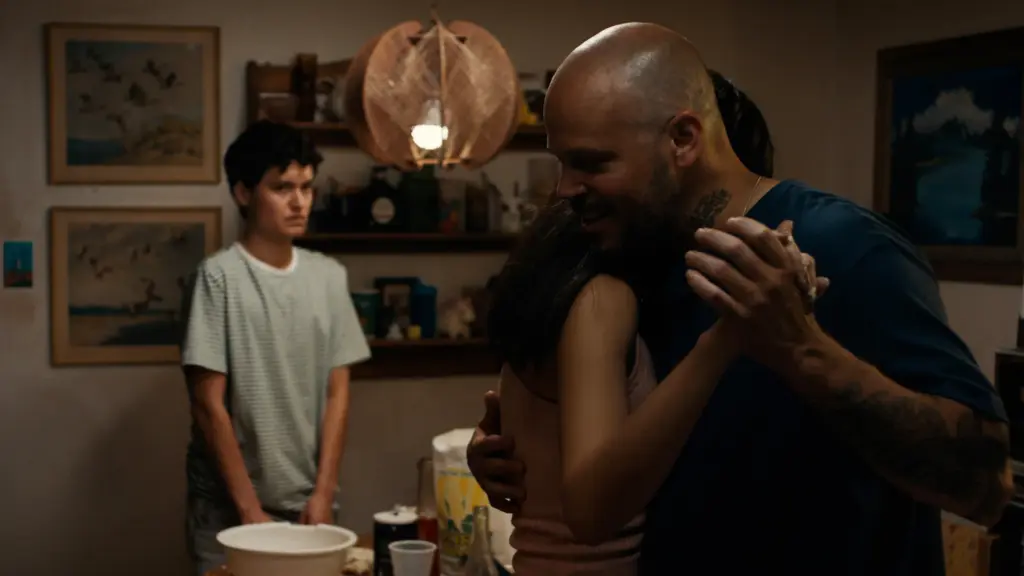
Now, as I’m older, people don’t always clock it, but growing up, I was always othered. I grew up in the suburbs of Seattle and being Latin, I was one of the only Latin kids. It was a very big part of my identity.
I also grew up going back to Colombia fairly often as a kid, seeing that culture. I don’t know how it influenced me as a filmmaker, specifically, other than I love Latin American cinema. There’s a very specific artistic and poetic aesthetic coming out of Latin America. Colombia, in the last 10 years, has made incredible strides. Also, Mexican filmmakers and Argentine filmmakers have been a huge influence on me. Like Lucrecia Martel, as I mentioned. But also Carlos Reygadas; his films have been a huge influence.
I’m very influenced by what’s coming out of Latin America, but moreso I’m Latin American in the U.S., and the clash of the two cultures exists. That is part of who I am.
What would you say was the seed that started your story, and when did you feel like you had found the nugget that completed your idea?
I would say that the structure is the first thing that came, [while] I was talking to my sister. What’s at the core is to see this man’s life in slices of time, through the perspective of his daughters. So, that came first.
The first outline was a lot more autobiographical, and slowly you’re like, well, life keeps going, and where do you end it? Where do you go? Certain elements were kept, but I really wanted these characters to become whole. I wanted certain themes to be obvious, and I wanted intentions to be clear, and by that, it became more and more fictionalized as we went through.
Did you shoot in Las Cruces? How did that affect things?
Yeah, we shot in Las Cruces. I didn’t grow up in Las Cruces. I’m not from that area, but I wanted a place that encapsulated a little essence of all the different places I grew up. Something that had extraordinarily beautiful landscapes, someplace that felt very Latin, someplace that felt very hot. There was something about the desert as a metaphor for these girls. Them being like prickly flowers that grow out of this arid land felt really important to me.
I found Las Cruces on Google maps. I literally was dropping the little guy and looking at places and it stood out. Way before I got producers involved, I called up my sister. I was like, “We’re going to Las Cruces,” and she was like, “What?” I wanted to be with her in that place to see if the setting could work, and literally driving into it from El Paso, I was like, oh, absolutely. It just felt like the right place.
The city has so much character and so much history. It’s been around for a long time, and it’s gone through so many changes, and everything I learned about the city actually fit in with what I wanted to tell about this family story. So it was a perfect fit, and it wasn’t until much later that I found out that it had a thriving film community, and it had tax breaks. All that came later. I picked it because I thought it was the perfect setting for the film.
What has it been like for you to find your voice as a filmmaker? I mean, was that instinctive, or did it take a bit of finessing?
I’m still finding my voice as a filmmaker. I think that’s an ongoing process. I mean, this is my first film. I’ve been watching movies since I was a kid, that’s how I learned English. I’ve been consumed by media since I was young, and gravitated to certain filmmakers.
You read stuff and you try to prepare, but at the end of this, I realized I’m completely instinctual, and it was just a feeling. I had a really clear vision for what I wanted, and that I think was my saving grace. You’re bombarded with a million questions as a director, and knowing exactly where I wanted to end up, and what I wanted to tell, and what I wanted to leave the audience with, and having that be my North Star – I think that helped me answer every single question that came up.
How much of this movie is autobiographical versus fictionalized?
It’s a mix. I say semi-autobiographical because this is my interpretation of the events. I have two sisters, and I have family, and they’re gonna have a completely different take on the experiences, but this is my take.
For me, there’s a lot of truth that’s like… there’s all that essence that’s real, but some of the actions, and some of the ways we get there, are fake. The car accident is 100% real. The whole last summer? Completely fake, none of that happened. So there’s parts that are completely fictionalized, and parts that are very much real, and then everything else is like a mix of.
With it being such a personal project, were there any little trinkets or memories from your childhood that you wanted to include in the film? Like, if someone knew you personally and watched it, they’d be like, oh, that’s yeah, that’s so Alessandra.
It’s funny because a lot of my friends who know me, they’re like, oh, that’s so you. There’s all these details. I grew up playing a lot of games, and I still love playing games. The act of the Yahtzee, the Pick-Up Sticks, the pool playing, those are all things taken from my life. There’s nuggets of books that I read as a kid, or stuff in there that’s completely mine.
I actually think the Pick-Up Sticks [in the film] are my personal pickup sticks brought from home, because I was like, oh, I have these already. So there’s little things thrown in there for sure that completely come from my life, and I don’t think anyone notices them but me.
This is a challenging project to cast, not only because it’s semi-autobiographical, but because you’re casting three sets of sisters. How did you find the right people?
The semi-autobiographical part of it did not influence the casting at all. I did not care about that. I was just trying to get the characters.
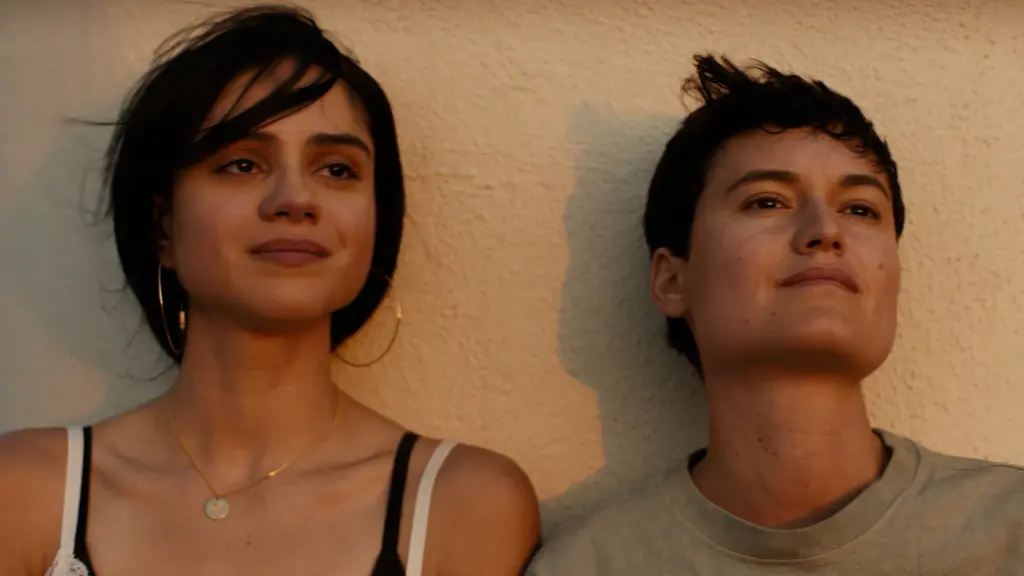
I worked with an incredible casting director, Stephanie Yankwitt of TBD Casting, and we brought her on fairly early. She was also one of the producers on the film, and she really took the time to understand my vision for it. Obviously, she understood the script, but she took the time to get to know me, get to know my aesthetics, so she knew exactly what I was looking for.
Then in the end, for the younger sibling, the younger girls, we did open casting in New York, Los Angeles and Las Cruces; and then a bunch of Zoom casting.
And obviously, getting René Pérez Joglar was like the biggest blessing of all. He’s absolutely perfect, and I’m just so honored that he was able to do this film. What a talent.
In terms of the girls, that was challenging because you need there to be a through line, right? You want it to feel believable, so we had to cast the younger and the older ones first, and that middle had to be a bridge between the characters so that you could see the jump. To be honest, we were casting right up until the end. Everyone was very nervous.
As you mentioned, you’ve got a Grammy winning rap star in your movie. What was it like bringing Residente, a.k.a. René Pérez Joglar, on board to play the father?
My God, I will forever be thankful for that man. He’s such a talent. Like everyone’s like, oh, it’s his first film. I was like, yeah, it doesn’t matter. He’s just one of those people that is just naturally fucking talented at everything he does.
Both of my sisters were super fans of him growing up — like super, super fans. I enjoyed his music too, but my sister, the one that’s two years my senior — he was her biggest crush. Her obsession growing up was René and Calle 13. I also have a video of my youngest sister rapping to his songs when she’s like five years old, so I knew him very well.
But I never thought of him, because he never acted like this. He wasn’t someone that would have been on my list, necessarily. Then, Alexander Dinelaris, one of my lead producers, mentioned him and immediately I was like, oh fuck yes. I had absolutely zero doubt, and I hadn’t felt that way about anyone else that we’d been exploring.
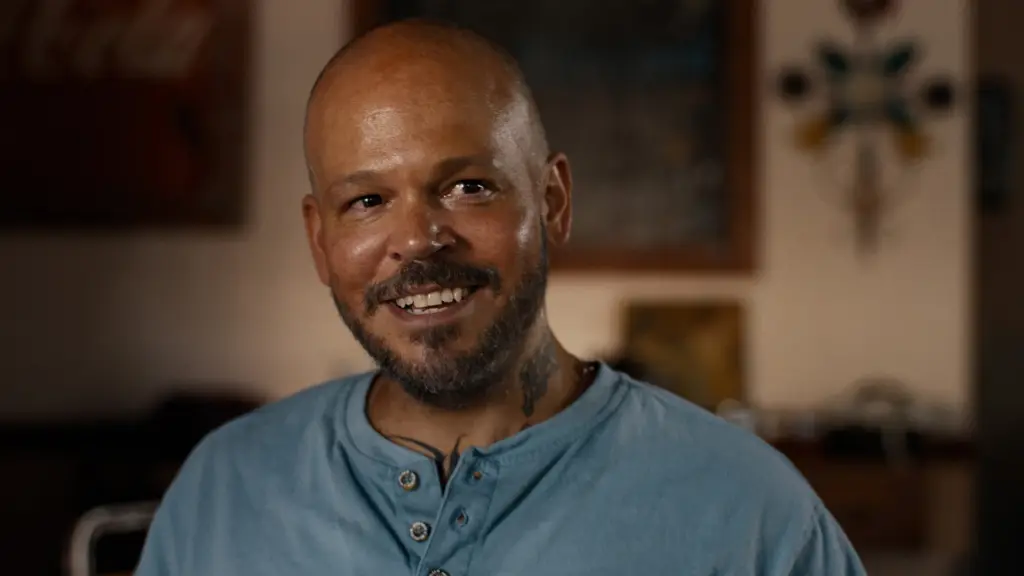
[René Pérez Joglar] has this thing where he has the stereotypes physically of a Latin man: tattoos, big muscles, rough. And then you listen to his music, or see his art (because he’s a filmmaker as well), and you’re like: he’s so thoughtful, he’s so intelligent. There’s this sensitivity to him, and for me, that was exactly what I wanted to capture in this character.
He’s just a fucking talent, you know? He’s gorgeous, and unlike working with someone who’s never been in front of the camera, he’s been in front of the camera since he was young. He’s not awkward, and he understands lenses and camera angles. It’s easier to have those conversations with him, and he has an incredibly expressive face, and so that just lends itself to acting. I hope he does more.
You have a very interesting depiction of queerness that feels very real. I found it interesting how you handled the relationship between your Trans character in the movie, Violeta, and her machismo father, Vicente. They bump heads, but she’s clearly the favorite over her more feminine cis gender sister Eva. How did you go about bringing such an authentic depiction of queerness to your story? How did you ground your film?
I came out when I was in high school, so I’ve been queer my whole life. For me, just telling a queer story that wasn’t about queerness was really important, because I know I have my mommy and daddy issues, and all these other traumas that have nothing to do with my sexuality or gender. That was an important perspective for me.
I mean, those stories are important. We need those stories, those coming-out stories to process. But I also want to see us just being out in the world, and being humans and making mistakes and not being perfect. That was very important to me. I didn’t want this film to be about a rejection of queerness, or rejection of anything.
For me, Vicente identifies with Violeta and her masculinity. He sees himself, he sees his goodness in Violeta, and so that’s part of the attraction. He doesn’t understand femininity. Even though he has a very special bond with Eva, he doesn’t understand her in the same way. He’s not connected to her on the intellectual level in the same way that he’s connected to Violeta. And it’s almost like Eva’s a reminder of his failures in some way, of the ways he can’t connect with women, and of his broken marriage. Maybe there’s even a subconscious thought, like he knows she’s more prone to addiction, so she is kind of reflecting back the qualities in himself that he maybe doesn’t love.
Also, because she sees him in such a beautiful light, it’s almost painful to see when you’re not doing your best, and someone is just reflecting all of your best qualities. There’s a triangulation between the three characters. That is something that I thought about a lot, and plotted throughout In the Summers, how that evolves and changes.
It’s an interesting choice that you made with the love scene between Violeta and Camila — one that doesn’t go the way you’d expect. How does Violeta wear her trauma on her sleeve?
Yeah, that for me is such a pivotal moment in the audience, understanding that Violeta is not okay, and that she has her own things. I think Eva wears her damage on her sleeve and it’s very apparent and you can see that she’s struggling with her addiction, and she has a lot of her qualities that her dad has in an obvious way, but Violeta does too. She just intellectualizes it. It’s more hidden beneath the surface.
That anger that she has, that comes from her dad, that’s been unexplored, is something that they’re going to have to deal with at some point. But they’re not even at that point where they realize that maybe they need to get into therapy, and actually explore some of these issues. They think they’ve removed themselves enough from that situation where they might’ve come out unscathed, but in reality, we’re all affected by the actions that our parents do, no matter how much we try to intellectualize them away.
Your film is broken into chapters, and each chapter is announced with a title card featuring detailed altars, or ofrendas, featuring objects from the girls’ childhoods. What was the decision behind that visual choice? Am I correct in saying that they’re ofrendas?
That’s what they’re called in Mexican culture, but they’re inspired by these Dutch Bonitas 16th and 17th-century paintings that are still lifes, so the ofrendas and those things are all tied together in memento moris. Memento moris are paintings or images that remind you of your own mortality through objects, and that’s what those are supposed to be, so they are tied to that history, but they’re based on this traditional painting style.
Once you’ve seen the skull next to flowers, next to a piece of dead fish, and all of that, it is supposed to remind you about the frailty of life, and how little time we have. That’s what I want. That’s what I think this film is in a lot of ways, and I wanted these pieces that were in the script. They’re very important to me, and they were always part of the narrative, to provide some grounded-ness and reflection for the audience.
Were the altars in detail in the script, or did you let the art department have free reign?
They were in detail, but not to the detail that they were in the film. Estefania Larrain de la Cerda, the production designer, who is incredible, she really took them to the next level, but there were certain things that were very specific.
Actually, in the script they became more and more minimalistic. [Estefania Larrain de la Cerda] comes to me, she’s like, “Did you give up by the end?” She’s like, “What am I supposed to do with this?” So, the essence of it was there, but then she just built it. Also, these were the last things we filmed. We knew what was in the film at that point, so we were able to bring in all these moments from the film to have them be there. I’m incredibly proud of them. I love them.
In your director’s statement, you said that while making this film, the question you kept asking yourself was, “Can we make amends for our missteps, or will they forever define us?” Now that you’ve come all this way and your movie is about to be released in theaters, what would you say is the answer to that question?
It’s an open question. I’m still searching for the answer. I don’t know. I mean, the thing about films is that they end, right? They have a beginning, middle, and end, and they have a conclusion, but life isn’t like that.
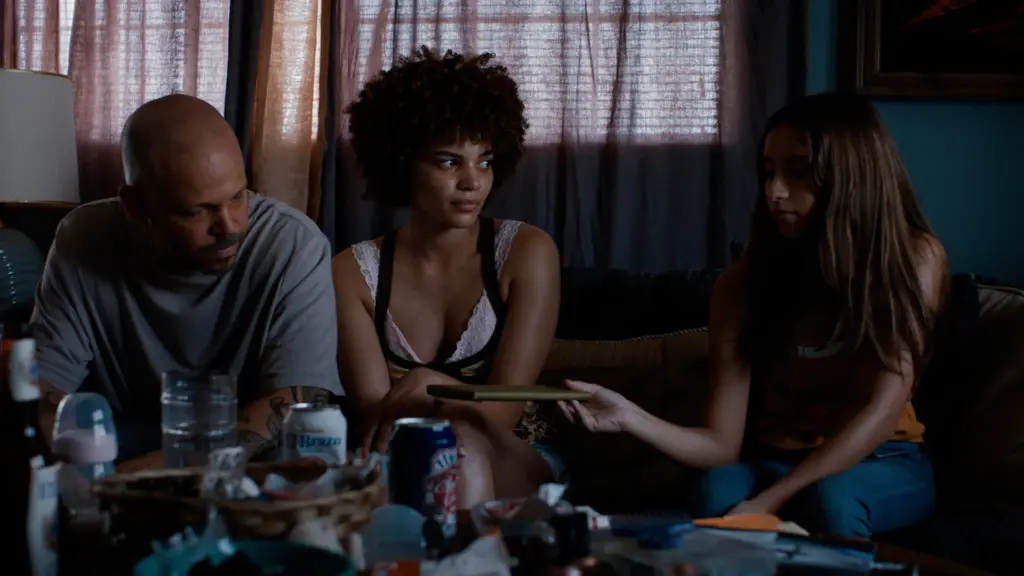
My dad died 14 years ago tomorrow, and we’re still living with the consequences of his life and his death. So yeah, it’s a question that I’m still exploring. Sometimes I feel completely healed, and other days I’m like, fuck you. It’s a complicated relationship, but I think there’s beauty to that, because that means that even though he’s dead, I still have an active relationship with him, in a lot of ways.
There’s a lot of conversation, and obviously, this film coming out, and this timing and all of that, it feels like we’re still talking about it. He would have probably not have been very happy about me making a film about him. So, it’s probably for the best that he’s not around to see it. I think he’s a very private person. I mean, he maybe would have been, who knows? I don’t want to guess things, but I’m not sure I would have made it if he was still alive.
With this being your debut feature, what lessons would you say you’ve learned, now that you’ve crossed the finish line?
I mean, probably a million things, but the thing that I was most surprised by is, I see myself as a very heady person. I’m in my head a lot. Maybe I over-intellectualize things, but being on set and working, I realized like I’m actually very instinctual. I operate from instinct, and that’s who I am as an artist, and it’s not something I realized about myself until making this film.

